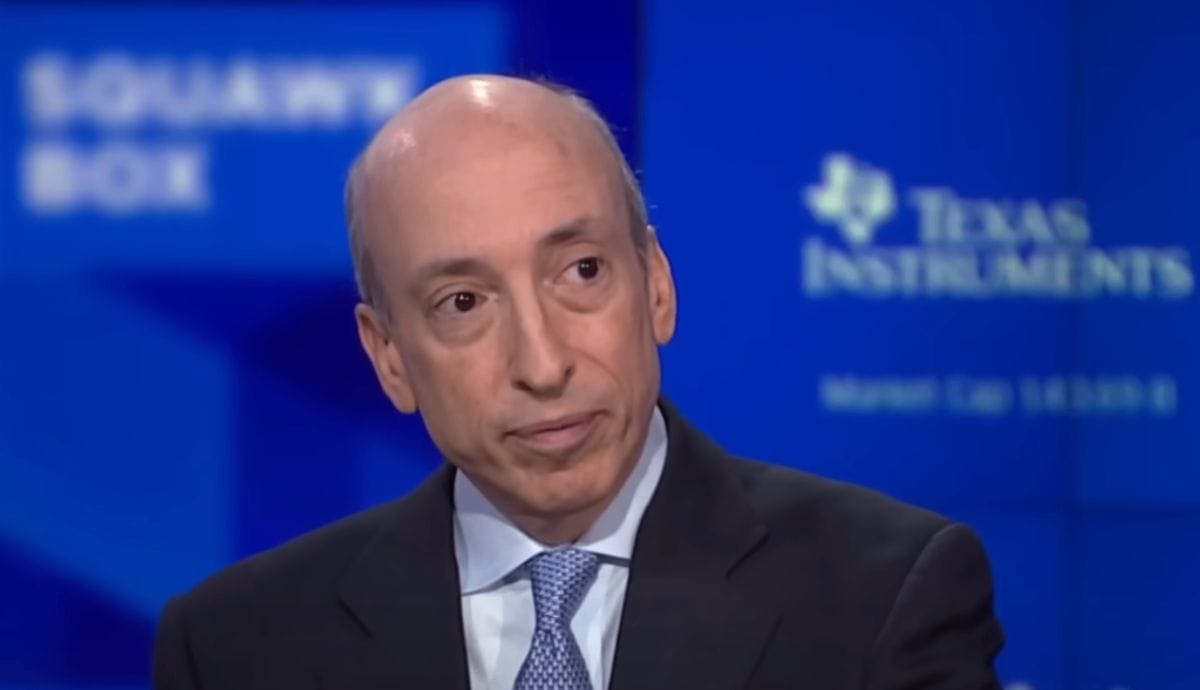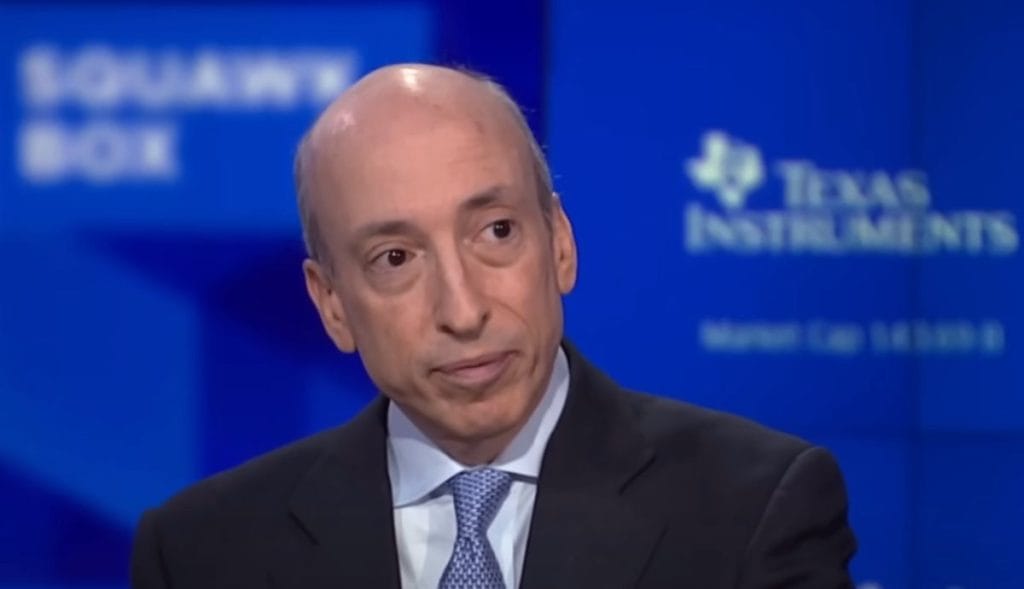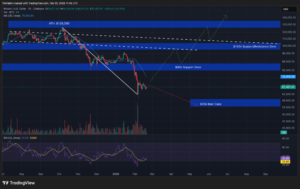Last updated:
 Why Trust Cryptonews
Why Trust Cryptonews

In a recent interview with CNBC, U.S. Securities and Exchange Commission (SEC) Chair Gary Gensler reiterated the critical need for trust in the cryptocurrency industry, drawing parallels between crypto and historical innovations like the automobile.
He emphasized that innovation, while essential, can only flourish with trust and transparency. By referencing the SEC’s role as the “cops on the beat,” he illustrated the importance of regulatory bodies in ensuring market safety.
Additionally, he stressed on the idea that the field could sustain itself without strict rules and proper oversight.
Gensler Call for Trust: “Crypto Will Not Survive Without Trust”
Gensler noted that the SEC’s enforcement actions against various crypto firms are intended to create a safe environment for investors.
These actions have targeted some of the industry’s most prominent figures, such as Sam Bankman-Fried (SBF) and others. Many of them are now facing jail time or substantial financial penalties.
He pointed out, saying:
“A number of them are in jail right now. I’m not just talking about SBF; a number of others,”
Gensler reiterated the importance of investor protection, referring to the numerous bankruptcies and billions of dollars lost in the space.
He criticized by pointing out the long-term consequences of allowing fraudulent practices to go unchecked.
Gensler also reiterated his belief in the cryptocurrency industry’s need for clear rules and investor protections, stressing that no field can thrive without building trust.
“This field will not long survive if you can’t build that investor trust in the markets,”
Referring to Bitcoin Whitepaper’s 16th anniversary, he acknowledged its innovation but warned that, like any other industry, crypto requires a regulatory framework to ensure it operates safely.
Gensler argued that while crypto is a small part of the global capital markets, making up less than 1%, investor protection is crucial to fostering innovation in the space.
Bitcoin’s Status: Still Not a Security
During the conversation, Gensler reaffirmed the SEC’s long-standing position that Bitcoin is not classified as a security.
He cited the Howey Test, which is used to determine if an asset qualifies as a security.
Under the Howey Test, an asset is a security if it involves an investment of money in a common enterprise, with the expectation of profits derived from the efforts of others.
Since Bitcoin operates more like a decentralized commodity, such as gold, it does not fit the criteria to be regulated as a security.
Stressing more on that, Gensler said:
“You can decide to go long or short these projects, but you need the disclosures.”
He also highlighted that he and his predecessor had consistently maintained that Bitcoin is not a security under the SEC’s purview.
This distinction sets Bitcoin apart from many other cryptocurrencies, which have been criticized by regulators for raising funds through unregistered securities offerings.
Notably, during the talk, Gensler addressed the broader concerns about unclear regulations in the crypto sector. He pushed back on claims that there’s regulatory ambiguity, noting,
“Not liking the rules is not the same as there aren’t rules.”
He maintained that the SEC’s role is to protect investors from the conflicts of interest and fraud that have plagued the industry.
Gensler’s tenure at the SEC has been marked by an aggressive stance against the crypto industry. The agency has taken legal action against major players like Ripple Labs.
Ripple Labs, for instance, was ordered to pay $125 million in fines for violating securities laws by raising capital through unregistered token offerings.

















